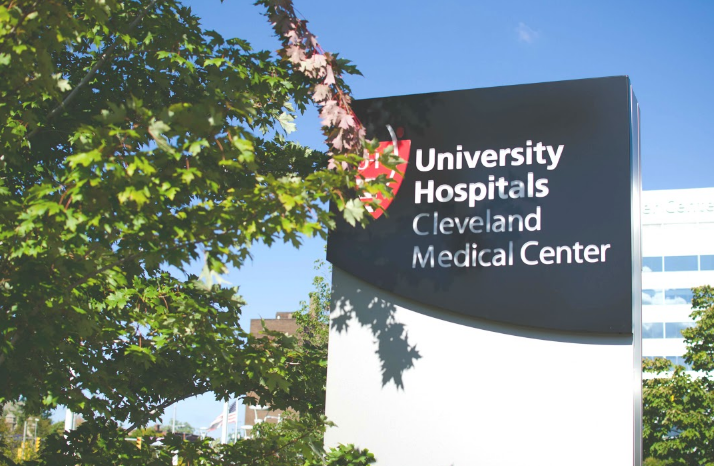No longer “Case” Medical Center
University Hospitals operates under new affiliation agreement with CWRU
Used to be called University Hospitals Case Medical Center, UH has dropped the Case appellation from its name.
October 7, 2016
University Hospitals (UH) and the Case Western Reserve University (CWRU) School of Medicine have always shared a strong bond. Its intimate partnership is apparent if you have ever walked down Euclid Avenue or Adelbert Road and saw the campus these two organizations shared. However the nature of this relationship has changed with the renewal of the affiliation between University Hospitals and the School of Medicine.
The new affiliation agreement allows University Hospital to have multi-affiliate standing. As part of this new relationship, the UH center closest to campus will change its name. Formerly the UH Case Medical Center, the hospital will change its name to the UH Cleveland Medical Center. Similar affiliation stance is applied to other medical institutions partnered with the CWRU School of Medicine, including the Louis Stokes Veterans Affairs’ Medical Center, Cleveland Clinic and the MetroHealth System. Despite this change, the School of Medicine and UH will still continue to collaborate on research projects.
The new agreement allows further expansion of research and academic opportunities for both parties. For example, the School of Medicine will develop clerkships that involve interprofessional education, or “boot camps,” to teach technical skills that will prepare students for residencies. Other notable contributions and innovations put forth by the School of Medicine include supplemental pathways of instruction in Humanities in Medicine, Bioethics, and Urban Health. New technologies are also arising to change the way courses are taught. The new HoloLens will introduce a new way to teach anatomy to students, while also opening new ways for instructors to teach the material. In short, the reaffiliation agreement between UH and the School of Medicine promises many new venues in the curriculum.
“The new affiliation agreement that we have recently signed with University Hospitals continues a strong, century-long association between the partners. Under it, our relationship gains new flexibility at a time when medical research and education are experiencing unprecedented change.” says Pamela Davis, Dean at the CWRU School of Medicine.
As a result, students joining the School of Medicine will not be feeling any negative impact from this changing relationship, if any at all. UH, along with the other CWRU-affiliated medical centers, will still provide students “distinct atmospheres and cultures” to conduct clinical rotations. “The new affiliation agreement with University Hospitals presents our school with new flexibilities in several areas while ensuring that our students continue to acquire the technical skills and values that are the hallmark of a CWRU medical education – truly a win-win situation,” remarks Davis. Part of what makes CWRU a compelling choice for many incoming medical students is the diversity of clerkships offered by the School of Medicine with its affiliated partners. Maintaining a longstanding relationship with UH ensures that the School of Medicine can uphold this quality.
Even though University Hospitals is dropping the “Case” appellation, the change does little to contradict the strength of the cooperation between the two organizations. The reaffiliation aims to better prepare students with the knowledge they need to succeed in a medical field, while also providing the medical school with a host of new resources and opportunities to advance in research. It is a move that will prepare UH and CWRU for an evolving medical landscape.


